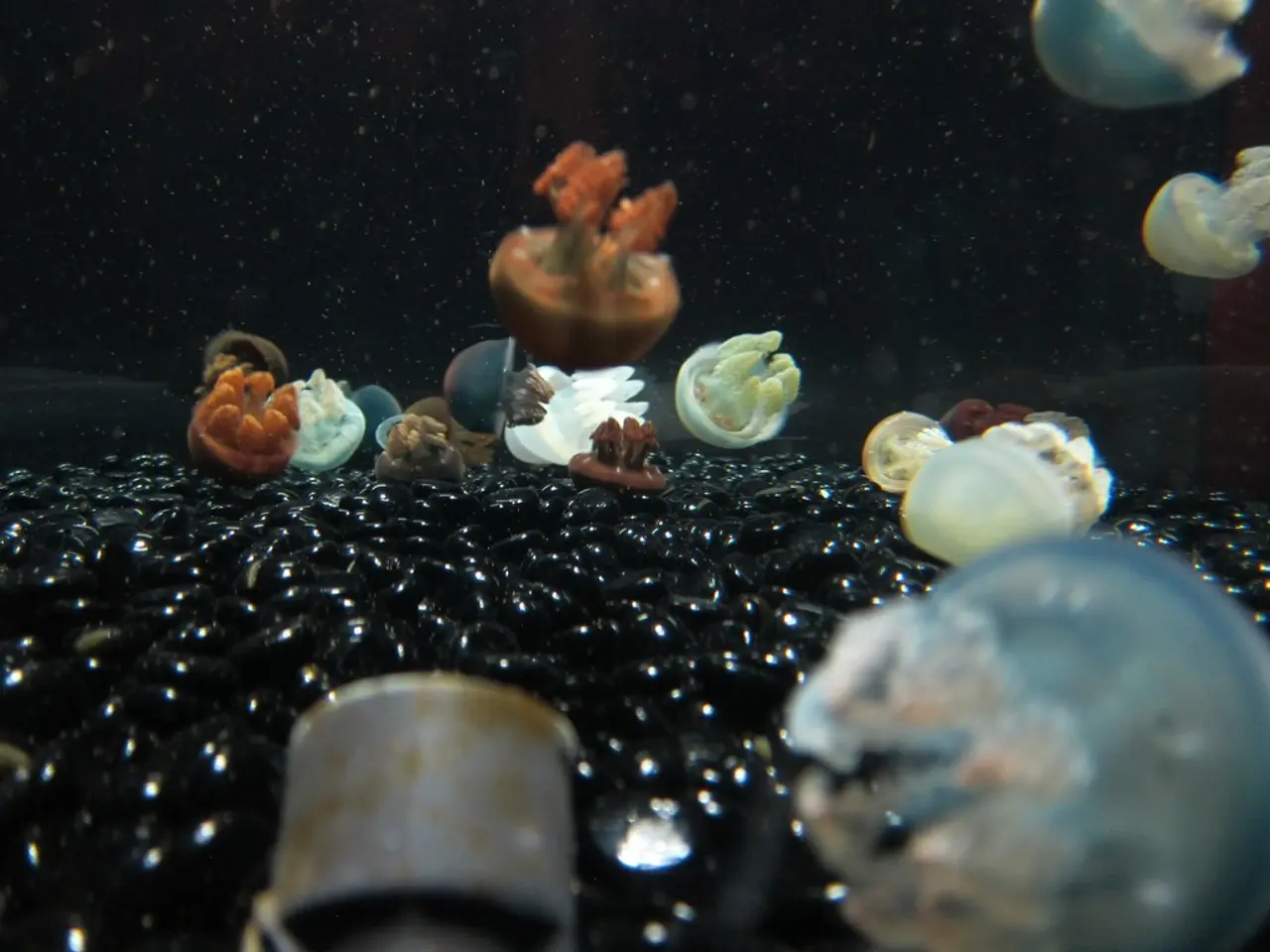Massive Jellyfish Shut Down France's Largest Nuclear Energy Facility - Jellyfish disrupt operations at France's largest nuclear energy facility
In an unexpected turn of events, the Gravelines nuclear power plant, France's largest with six pressurized water reactors, has temporarily halted the operation of four reactor blocks due to an invasion of jellyfish. The incident, reported by the plant's operator EDF, marks the latest example of jellyfish causing disruptions at atomic reactors.
The jellyfish were found clogging the filter drums of the cooling water pump stations, a non-nuclear part of the facility. This is not an isolated incident; similar occurrences have been reported at nuclear power plants in Scotland and Sweden.
On Sunday evening, three units at Gravelines were automatically shut down, followed by the fourth early Monday morning. Despite these shutdowns, other power plants are capable of compensating for the outage, ensuring the power supply remains uninterrupted.
The type of jellyfish involved in the incident is currently under investigation. It is worth noting that warmer ocean temperatures and environmental changes, such as low-oxygen zones caused by agricultural runoff, have led to more frequent and intense jellyfish blooms near coastal waters. This trend has been linked to the increasing number of incidents involving jellyfish and nuclear power plants.
EDF, the plant's operator, has assured the public that the safety of the facility, its employees, and the environment was not at risk. The spokesperson for the plant reassured that the shutdowns were precautionary measures and the reactor blocks will be restarted gradually, although the exact timeline remains unclear.
The Gravelines power plant, situated on the English Channel, uses seawater from the nearby North Sea for cooling. This incident serves as a reminder of the delicate balance between human activity and the natural world, and the potential consequences that can arise when that balance is disrupted.
References:
- BBC News
- The Guardian
- NPR
- Scientific American
- CNN
- The community and employment policies of EDF, the operator of the Gravelines nuclear power plant, should include guidelines for dealing with unexpected disruptions caused by jellyfish, given the increasing number of such incidents due to climate-change and environmental alterations.
- In light of the ongoing issue of jellyfish disrupting nuclear power plants, including the Gravelines facility in France, it is crucial for the science and finance industries to collaborate on research aimed at mitigating the effects of jellyfish blooms, particularly in the context of climate-change.
- As the Gravelines incident underscores the impact of environmental-science on the energy industry, it is essential to implement policies that promote sustainable practices and consider the environment in industry operations, including energy production, to minimize future disruptions caused by climate-change and other environmental factors.





